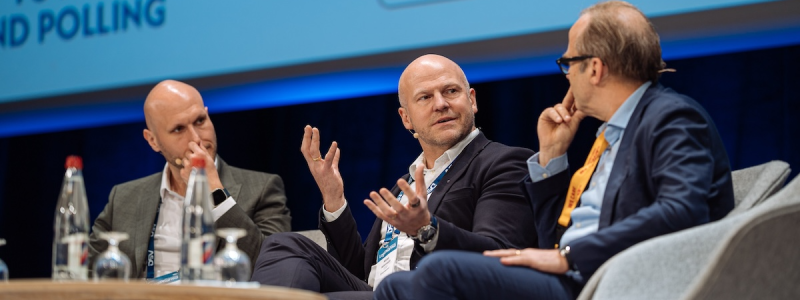Reactivity to Resilience: How Pharma Supply Chains Are Preparing for 2030

Panelists agreed the next five years will be a turning point for pharma and medtech supply chains, with artificial intelligence (AI) and automation set to become foundational.
Strategic alignment between supply chain and commercial functions was highlighted as critical. Oscar De Bok emphasised “To start with the customer advisory board, for us it’s important to have a dialogue with the supply chain to make sure we are covering both sides… so we are making the right choices on the investments we need to make."
Proactivity, rather than mere reactivity, was a recurring theme. Niklas Adamsson stressed, “Our customers and partners aren’t looking at recovery; they’re looking at avoiding disruption altogether.”
He added, “When the dark clouds come, and they will, we need to be prepared for the rain. Let’s sit around the table to come up with some plans.” Oscar De Bok reinforced the importance of infrastructure: “You also need infrastructure to execute. This makes sure we can provide infrastructure for end-to-end supply chain. To be able to respond to crisis. An important role we can play.”

The panel discussed how data aggregation and analytics are unlocking new levels of visibility and predictability. Niklas Adamsson cautioned, “Aggregated data doesn’t do anything if you don’t have the right workforce. This is the key to making use of the data. A fool with a tool is still a fool.” Oscar De Bok added, “Being able to understand data and what you can do with it. How to prioritise and know what to ask and what needs to be done. That’s all people.”
The message was clear: “data without interpretation is noise”. True value comes from making data usable—structured, shared, and contextualised—and investing in people who can act on insights.
Despite the focus on technology, the panelists emphasized that people remain at the heart of successful transformation. As Adrien Brunie noted, “If everyone is interested in AI, the biggest thing that still needs our focus is people.” Building a workforce capable of leveraging new tools and adapting to change is essential for sustaining progress.
Sustainability emerged as a shared responsibility. Oscar De Bok stressed, “Sustainability, nobody owns this problem, it’s a joint problem and we all need to take a bite of it.” The industry has seen significant improvements in sustainable solutions, driven by collaborative investment and regulatory pressure. “If you look today compared to two years, sustainability solutions are so much better and that’s because people have invested,” he added.
Preparing for the Future
The session concluded with a call to action: supply chain leaders must invest in both technology and people, foster cross-functional and cross-company collaboration, and embrace sustainability as a collective imperative. By moving from reactivity to proactivity, the industry can build resilient, agile, and future-ready supply chains that meet the demands of 2030 and beyond.


To view the full post-event report, including all the key insights, trends, and expert perspectives, click here.